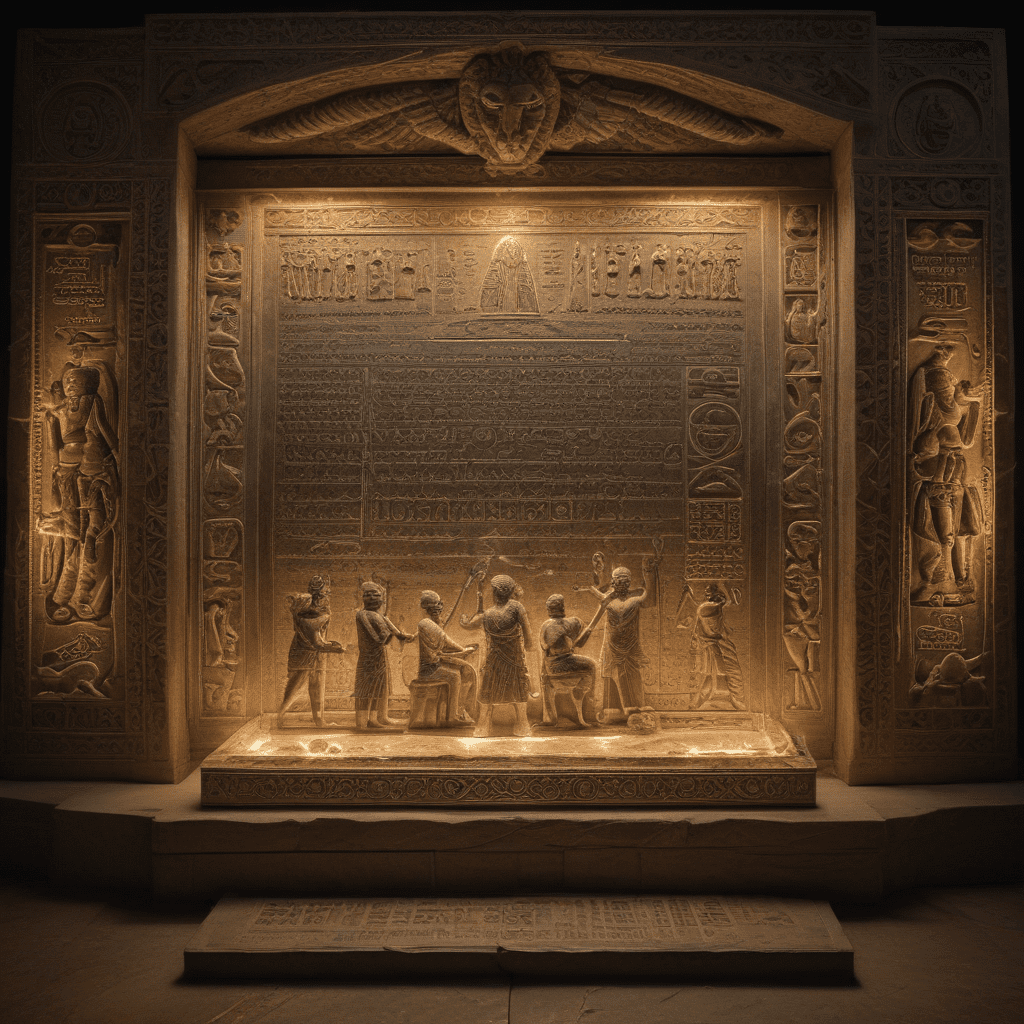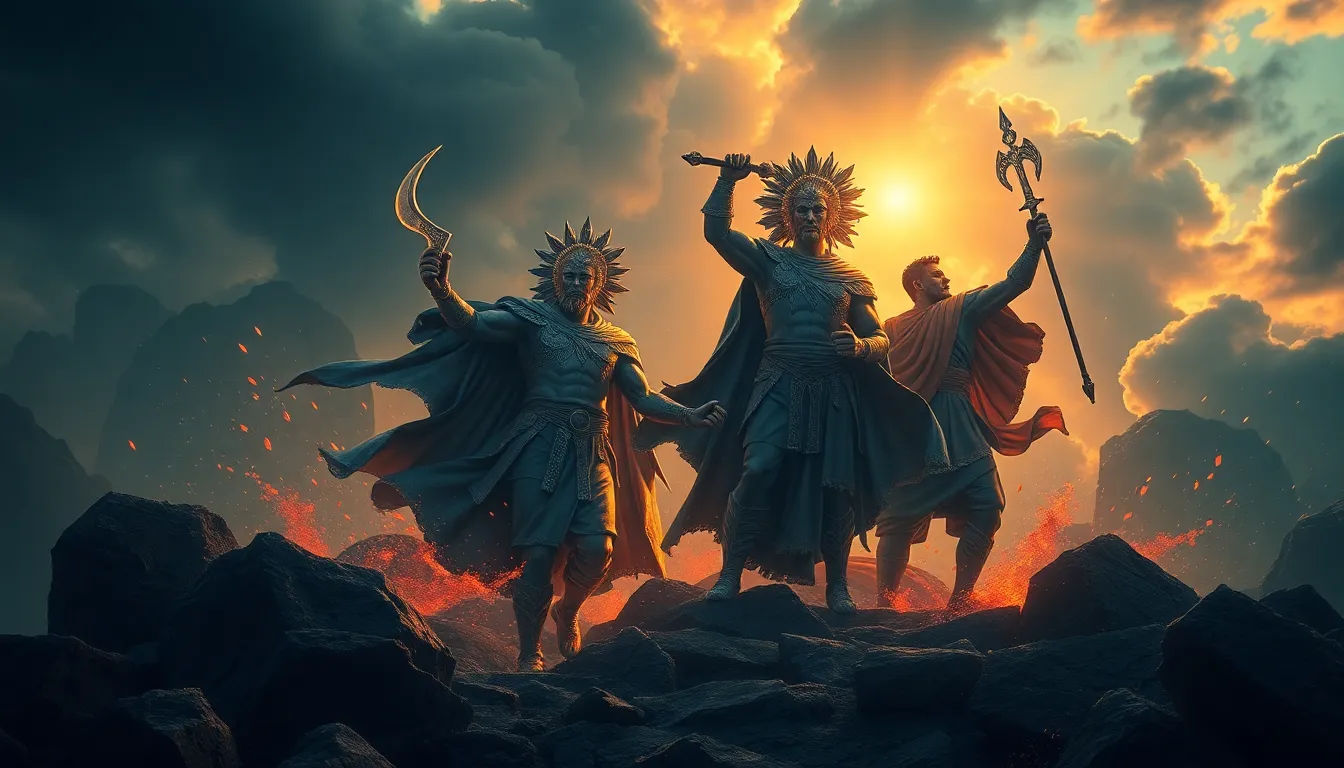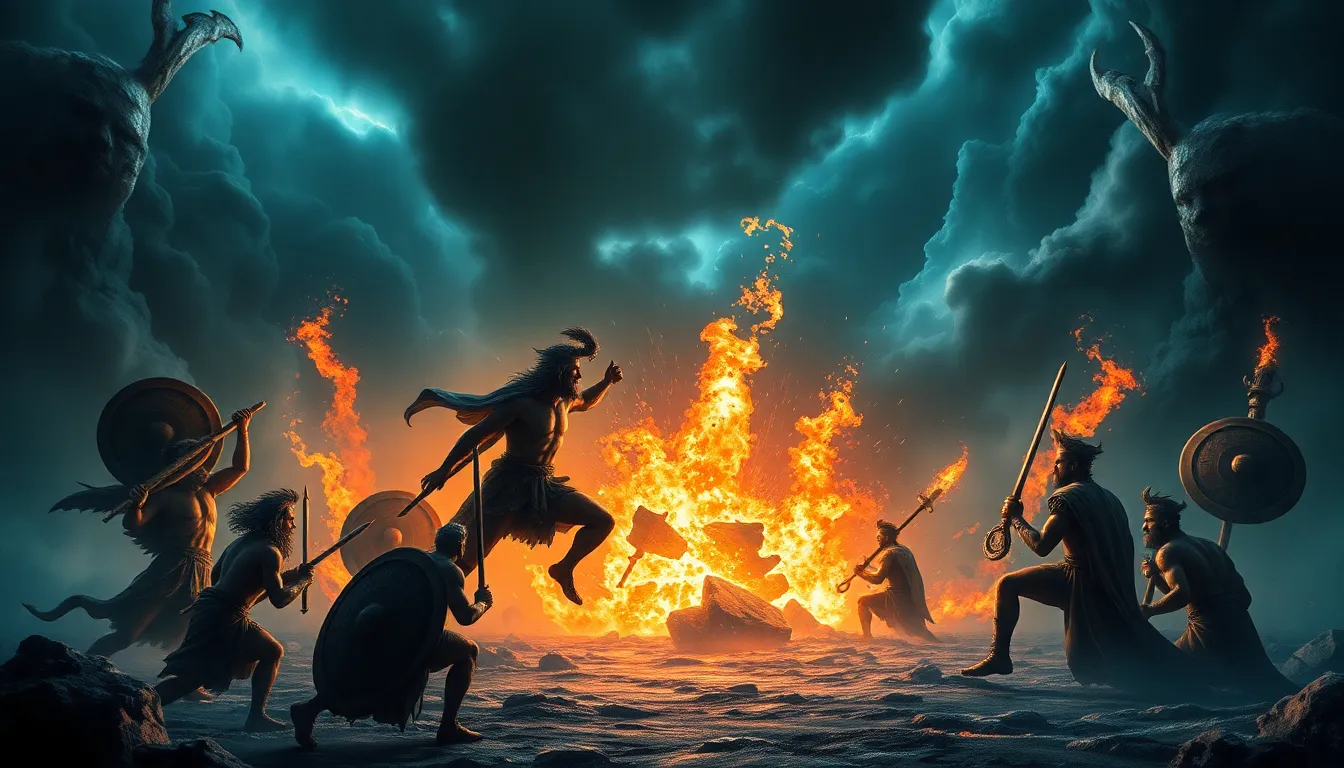The Myth of the Tablet of Destinies: Power and Control in Mesopotamian Mythology
1. Introduction: The Allure of Fate and Destiny
Humans have always been fascinated by the concept of fate. Throughout history, numerous cultures have developed unique mythologies and beliefs around the idea of destiny. In Mesopotamian mythology, the Tablet of Destinies played a central role in shaping the lives of gods and mortals alike. This enigmatic object embodied the ultimate power and control over all that was, is, and will be.
2. The Tablet of Destinies: In the Hands of the Divine
The Tablet of Destinies was believed to be crafted by the hands of Enlil, the supreme god of the Mesopotamian pantheon. This divine artifact contained the inscribed destinies of every living being, from the humblest peasant to the most powerful king. The tablets were said to be inscribed with intricate symbols and cuneiform script, holding the secrets of each individual's life, their successes and failures, their joys and sorrows.
3. Decoding the Will of the Gods: Interpreting the Tablets
The secrets of the Tablet of Destinies were not readily accessible to mortals. Only a select few, the high priests and chosen oracles, possessed the knowledge and divine favor to interpret the cryptic symbols and pronouncements etched on the tablets. These individuals served as intermediaries between the divine realm and the human world, revealing the will of the gods to those who sought guidance and understanding.
4. The Power of the Tablets: Shaping Individual Fates
The power of the Tablet of Destinies was not simply confined to foretelling the future. It was believed that the tablets held the very power to shape events and alter the course of lives. The gods, through their chosen representatives, could influence the fate of individuals, nations, and even the entire world. This belief instilled a sense of awe and reverence towards the divine, as well as a deep-seated fear of the potential consequences of defying the will of the gods.
5. The Limits of Destiny: Free Will and Human Agency
Despite the seemingly absolute power of the Tablet of Destinies, Mesopotamian mythology also acknowledged the existence of free will and human agency. Individuals, through their actions and choices, could potentially influence their own destinies, even if they could not entirely escape the overarching framework established by the gods. This tension between determinism and free choice created a complex and dynamic understanding of fate in Mesopotamian thought.
6. Kingship and the Tablets: Divine Legitimacy and Royal Power
In Mesopotamian society, kingship was believed to be a divinely ordained institution. The Tablet of Destinies played a crucial role in legitimizing the rule of kings. It was believed that the gods, through the tablets, had chosen specific individuals to lead their people. The king, as the chosen representative of the divine, was responsible for maintaining order and justice, ensuring the prosperity of the land, and upholding the will of the gods. This belief in divine legitimacy provided a powerful justification for royal authority and helped to maintain social order.
7. Negotiating Fate: Rituals and Appeals to the Divine
While the Tablet of Destinies held immense power, Mesopotamians believed that it was not entirely inflexible. Through various rituals and supplications, individuals could attempt to influence their fate or seek divine intervention in times of need. These rituals often involved offerings to the gods, prayers, and incantations aimed at appeasing the divine and altering the course of destiny. While the success of these rituals was not guaranteed, the belief in their potential effectiveness offered hope and a sense of control over one's own destiny.
8. The Tablet of Destinies in Mesopotamian Literature: Gilgamesh and Atrahasis
The Tablet of Destinies features prominently in several Mesopotamian literary works, most notably the Epic of Gilgamesh and the Atrahasis Epic. In the Epic of Gilgamesh, the hero's quest for immortality leads him to seek the Tablet of Destinies, hoping to unravel the secrets of life and death. In the Atrahasis Epic, the Tablet of Destinies plays a central role in the flood narrative, as the gods use it to determine the fate of humanity. These literary works not only reflect the importance of the Tablet of Destinies in Mesopotamian thought but also explore the complex themes of fate, free will, and human struggle against the divine will.
9. The Symbolism of the Tablet: Power, Control, and the Divine Order
The Tablet of Destinies served as a powerful symbol in Mesopotamian mythology, representing the absolute power and control of the divine over the lives of mortals. It embodied the concept of a preordained cosmic order, where every event, every individual's fate, was predetermined by the gods. This belief instilled a sense of awe and reverence towards the divine, as well as a recognition of the limitations of human agency in the face of a seemingly immutable destiny.
10. Conclusion: The Enduring Legacy of the Mesopotamian Myth of Fate
The myth of the Tablet of Destinies left an enduring legacy on Mesopotamian culture and beyond. It shaped religious beliefs, political systems, and literary narratives, providing a framework for understanding the human condition and our place within the cosmos. While the belief in an all-powerful Tablet of Destinies may have faded with time, the themes of fate, free will, and the search for meaning in a seemingly predetermined world continue to resonate with us today.
FAQ
What was the purpose of the Tablet of Destinies?
The Tablet of Destinies was believed to contain the inscribed destinies of every living being, from gods to mortals. It served as a symbol of the divine power and control over the universe and provided a framework for understanding the human condition and our place within the cosmos.
Who had access to the Tablet of Destinies?
Only a select few, the high priests and chosen oracles, possessed the knowledge and divine favor to interpret the cryptic symbols and pronouncements etched on the tablets. These individuals served as intermediaries between the divine realm and the human world, revealing the will of the gods to those who sought guidance and understanding.
Could the Tablet of Destinies be changed?
While the Tablet of Destinies held immense power, Mesopotamians believed that it was not entirely inflexible. Through various rituals and supplications, individuals could attempt to influence their fate or seek divine intervention in times of need. The success of these rituals was not guaranteed, but the belief in their potential effectiveness offered hope and a sense of control over one's own destiny.
What is the significance of the Tablet of Destinies in Mesopotamian mythology?
The Tablet of Destinies played a crucial role in shaping Mesopotamian religious beliefs, political systems, and literary narratives. It provided a framework for understanding fate, free will, and the divine order, themes that continue to resonate with us today.




